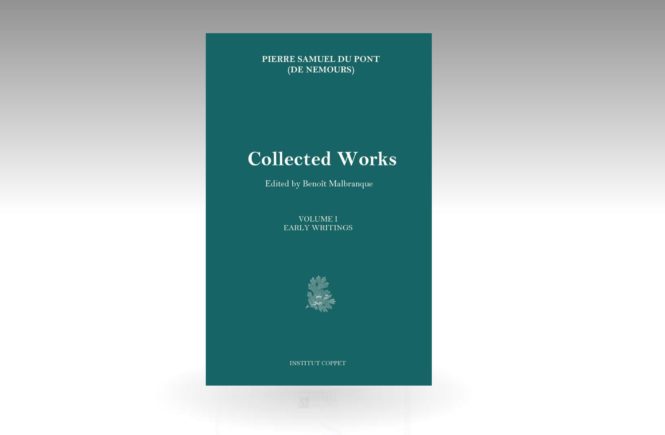On introducing the first of multiple volumes offering the collected writings of the Physiocrat economist Pierre Samuel Du Pont (de Nemours), lengthy pages could be devoted to his merits or the tremendous heritage that he left, both intellectually and practically, on each side of the Atlantic. Yet on the assumption that a reader opening such a large book must have been motivated by more than a sense of curiosity, and his justification been more substantial than a pick at random, I shall confine myself presently to the assertion that on the part of the Institut Coppet, and mine, it is our feeling that a duty has simply been performed, and justice rendered.
François Quesnay, Tableau économique (1758)
THE productive Expenditures are employed in agriculture, meadows, pastures, forests, mines, fishing, etc. to perpetuate riches in the form of grain, beverages, wood, cattle, raw materials for the handicrafts, etc.
The sterile Expenses are made upon handicraft products, housing, clothing, interest on money, servants, commercial expenses, foreign commodities, etc.
The sale of the net product which the Cultivator has produced during the preceding year, by means of the annual Advances of 600 livres employed in agriculture by the Farmer, furnishes the proprietor a revenue of 600 livres.
François Quesnay, On Natural Rights (1765)
The natural right of man in its primitive and most comprehensive sense is, the right which man has to whatever is advantageous to him; or, as the author, some of whose works I now publish, says, ‘the right which man has to whatever is necessary to his enjoyment.’
This right is subject, even by nature, to relations which vary its use so much, that we are obliged to define it in a very general manner, so as to embrace all the different states in which man can exist.
Material on the French school of political economy
Pierre de Boisguilbert (1646-1714) Hazel Van Dyke Roberts, Boisguilbert: economist of the reign of Louis XIV, New York, Columbia University Press, 1935 “Boisguilbert: An Early French Economist“, 1873, Westminster Review Vauban (1633-1707) A Project for a Royal Tythe, or General Tax, which by suppressing all the ancient funds and later projects for raising the public revenues, and for ever abolishing all exemptions, unequal assessments, and all rigours and oppressive distraining of people, will furnish the government a fixt and certain revenue, sufficient for all its exigencies and occasions, without oppressing the subjects, London, 1708 (see also the 1710 edition) Richard […]

